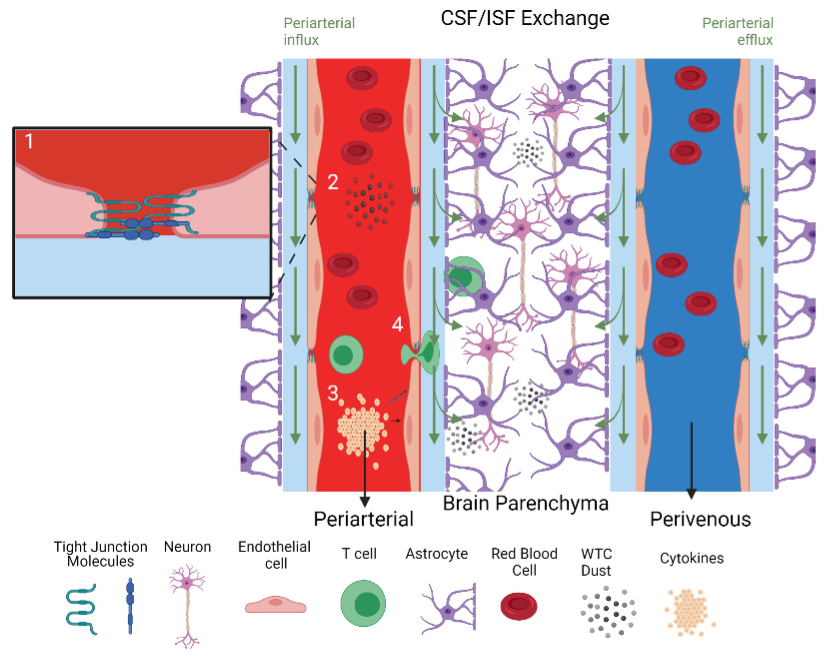In the subsequent years following the World Trade Center (WTC) attack on September 11th, 2001, a cluster of chronic health conditions have emerged among first responders (FRs) who were present during the aftermath of the attack. Many FRs were at Ground Zero for prolonged periods and so were repeatedly exposed to high levels of dusts comprised of particles of varying sizes that contained metals, polychlorinated biphenyls, polyaromatic hydrocarbons, among other known toxins. A growing body of scientific literature indicates that FRs who were exposed to high levels of dust for prolonged periods of time may have a greater incidence of mild cognitive impairment (MCI), as well as other neurological complications (i.e., changes in white matter connectivity, decreased hippocampal volume) which may put them at a greater risk of developing Alzheimer’s Disease (AD) later in life. We are conducting studies to explicitly test the hypothesis that exposure to toxic WTC dust causes cognitive impairment and AD-type pathology, using rodent models. These studies will examine several independent and potentially overlapping mechanisms which converge on the central point of neuro-inflammation as a driver of AD-like pathology. We will examine changes in the functionality of the glymphatic system, permeability of the blood-brain-barrier (BBB), and cross talk between the peripheral immune and central nervous systems.

